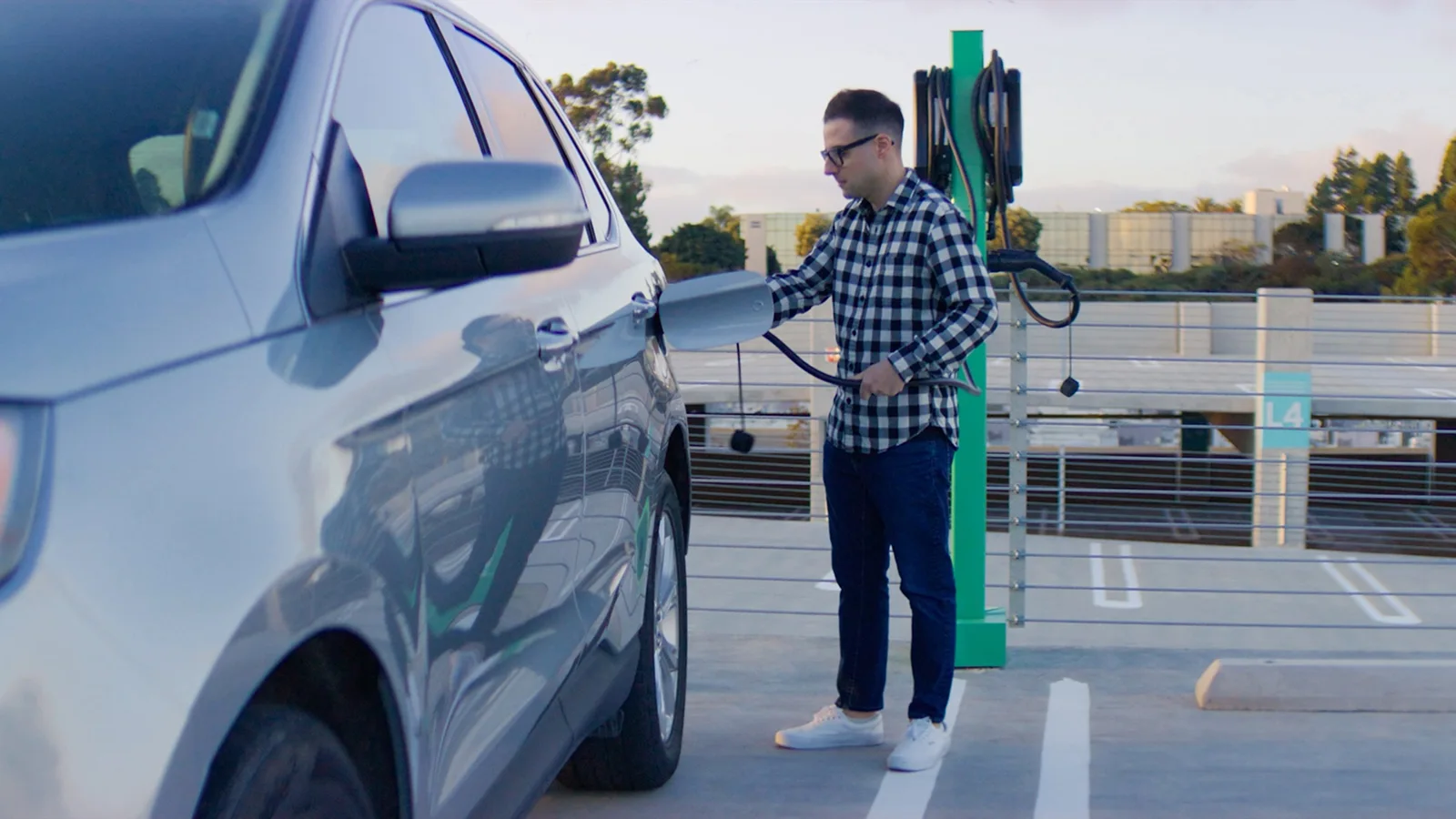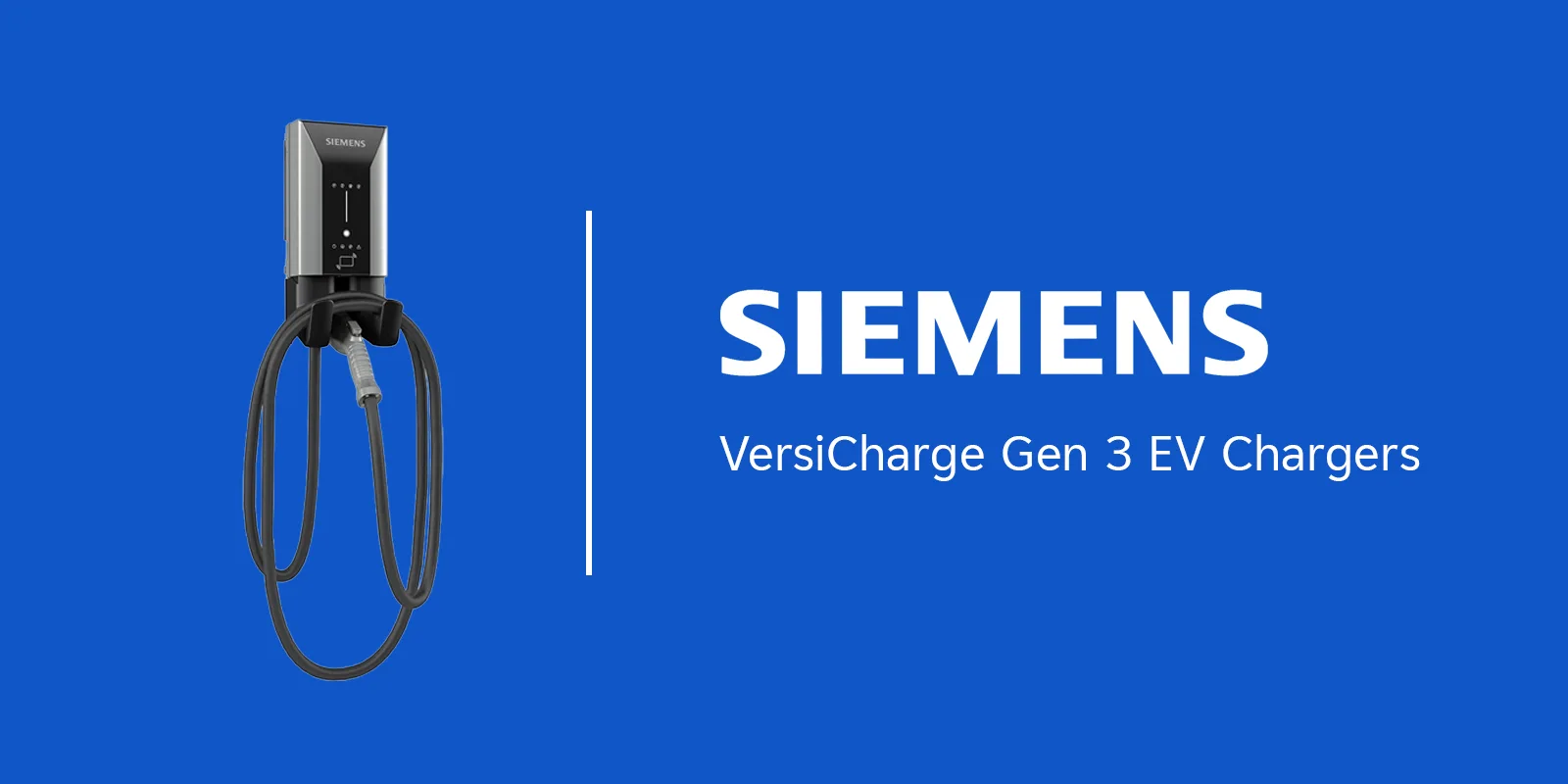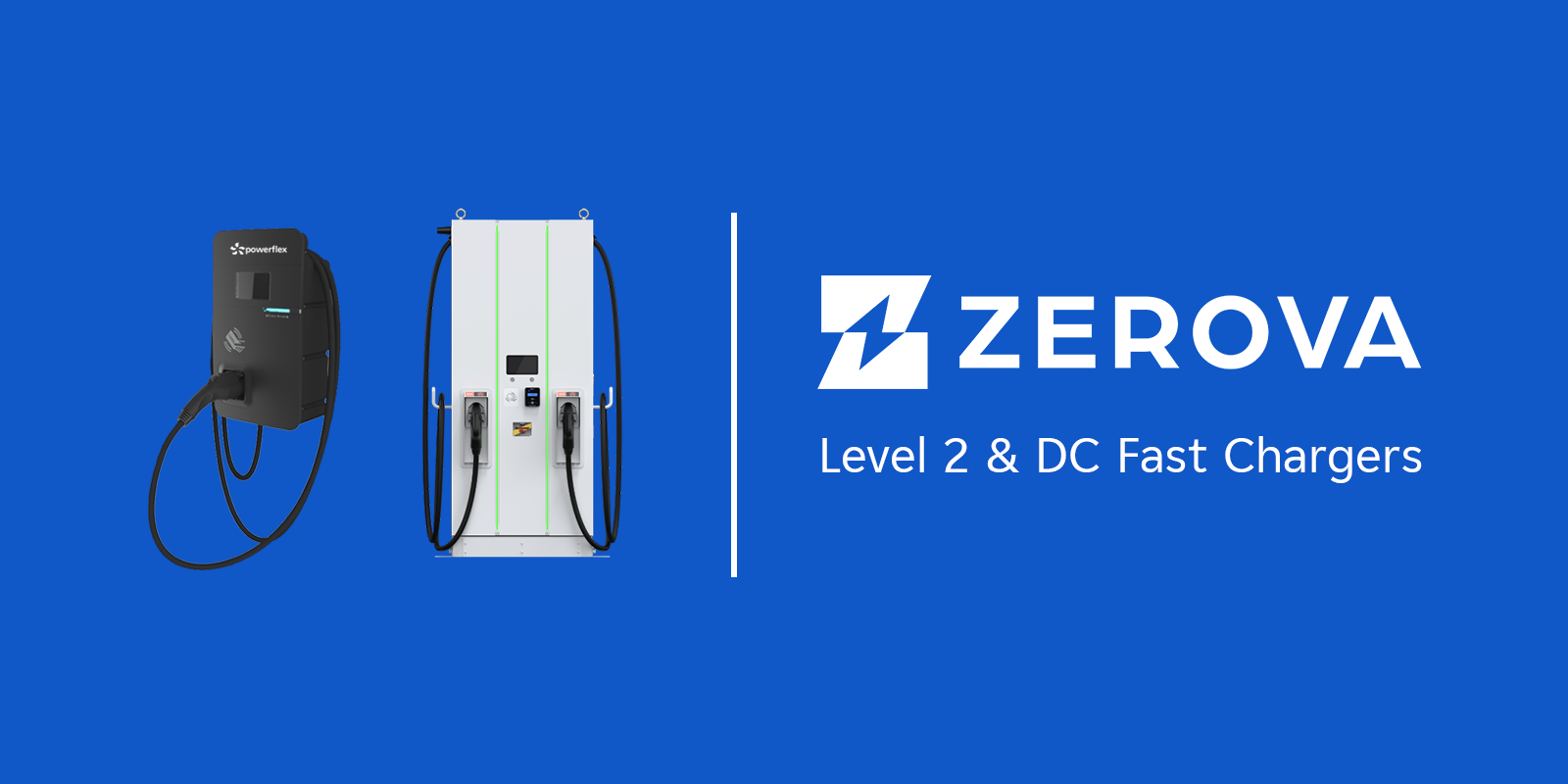How Much Does a Commercial EV Charging Station Cost?
.jpg)
For any customer considering installing electric vehicle (EV) charging stations at their commercial property, there’s one very big question that inevitably arises: How much does a commercial EV charging station cost? Like many other types of investments, the actual cost of implementing an onsite EV charging solution depends on many factors. Let’s explore them so you can ultimately make the best decision for your business.
Contact us for a free PowerFlex X™ demo.
Types of Commercial EV Charging Stations
First, it’s important to understand the differences among the various commercial EV chargers in the market. EV charging stations come in three types, each with its own power requirements, charging speeds, and driver applications. In addition, enabling Wi-Fi connectivity for your smart chargers will help EV owners monitor the status of their commercial charging stations, as well as identify potential issues.
Level 1 Charging
This basic level of charging utilizes a standard 120-volt household power outlet and provides the slowest charging rate. A Level 1 commercial charging station grants a driver around 5 miles of range for every hour the vehicle is plugged in. This type of charging is more conducive to residential applications than commercial and is most suitable for drivers who have short commutes and can charge their car every night while they sleep.
Level 2 Charging
Level 2 charging stations typically operate on a 240-volt power supply, offering a much faster charging experience compared to Level 1. These stations are commonly found in commercial settings, including parking lots, shopping centers, office buildings, and anywhere else a driver may need to replenish their vehicle while away from home. Drivers typically get about 25 miles per hour with a Level 2 charger, making it more ideal for the average user.
Level 3 (DC Fast) Charging
Also known as DC Fast Charging, Level 3 stations enable rapid charging sessions. They require much higher voltage and generally can provide a range of 200 miles per hour of charging. Many commercial EV charging installations include a mix of both Level 2 chargers and DC Fast Chargers to accommodate drivers who plan to stay parked for a while, as well as those who are in a hurry.
(Related: How to plan your EV Charging Station Design.)
Types of Costs Involved With Commercial EV Charging Stations
Next, let’s start to break down the cost of a commercial EV charging station. Like most big purchases, it’s best to understand the cost of an EV charging station not as a single fee but as a sum of component costs.
- Hardware Costs: Costs related to the purchase of equipment like the charging stations themselves, cables, connectors, and other necessary components to support the installation
- Installation Costs: Site preparation, permits, construction and labor, and any electrical infrastructure upgrades that might be required
- Operational Costs: Ongoing expenses such as the cost of electricity to power the charging stations, routine maintenance and repairs, driver support, and — in the case of networked chargers — software for load management
- Regulatory Costs: These costs depend on the location of the installation and go toward ensuring the work complies with all building codes, zoning regulations, and accessibility requirements
Customers may also opt to coincide additional projects with an EV charging installation that further enhances the parking experience on their property, such as repaving lots or building a new parking structure.
(Related: Best Commercial EV Charging Stations)
Factors Affecting Commercial EV Charging Installation & Operating Costs
Now that we’ve unpacked the elements that make up the overall cost of a commercial EV charging station, let’s explore some of the factors that determine what that overall cost will be.
- Site Conditions: Environmental factors that affect the complexity of the site preparation such as terrain, soil conditions, and lot configuration, as well as the distance between chargers and the facility’s electrical room
- Charging Demand: How many EVs are anticipated to visit the site each day factors into the number of charging stations needed (and the amount of electricity required to operate them)
- Type of Chargers: Level 2 chargers cost less than their Level 3 counterparts and tend to be more affordable overall due to the differences in power and infrastructure requirements
- Price of Electricity: Utility rates vary by location and contribute to the ongoing cost of the system
- Power Capacity: If charging demand isn’t properly managed, utility upgrades may be necessary to handle the power needs of the charging stations
- Customizations: Additional features such as charger branding, user interface customization, and signage can also add to the project budget
- Permitting and Regulatory Requirements: Costs associated with obtaining permits, complying with regulatory standards, and navigating local ordinances
- Charger Access: Chargers intended for public use (versus chargers located on private property) may have to comply with different regulations, like needing a self-pay kiosk
- Available Incentives: On a positive note, EV charging stations may be eligible for sizeable tax credits, plus many U.S. states offer attractive rebate programs that can reduce per-charger installation costs
- Charging Fees: Opting to levy a nominal per-kilowatt-hour (kWh) fee for drivers who use your charging stations can help mitigate expenses and further reduce the overall cost of the project
(Related: Benefits of EV Charging Stations for Business)
How Much Does It Cost to Install an EV Charging Station?
So, when it’s all said and done, how much will installing EV charging stations on your property actually cost you? It’s not a cut-and-dry answer. The exact cost will vary from project to project based on the factors we reviewed above — and the first step to gaining clarity is to conduct a thorough EV charging project assessment.
The point of an EV charging project assessment is to gather information about your site and your EV charging needs. You’ll want to start by getting copies of your electrical plan and past utility bills, and then determine who will be using your chargers (employees, customers, fleet drivers) and how many commercial electric vehicles you anticipate hosting on the property at any given time. An experienced EV charging provider can work on this assessment with you and then begin to outline a proposed EV charging solution.
Get in Touch With PowerFlex to Install Commercial EV Charging Stations
Not only can PowerFlex assess your property for EV charging stations and plan the design for your system, but we also handle everything else including construction, permitting, incentive applications, and asset management. But where PowerFlex excels versus the competition is our ability to reduce installation and operating costs.
Our intelligent energy management platform, PowerFlex X™, uses patented Adaptive Load Management® algorithms to optimize EV charging and eliminate spikes in facility energy consumption that can trigger expensive peak demand fees from the utility. ALM also allows customers to deploy a large number of charging station installations without the need for expensive electrical system upgrades — saving customers up to 60% on implementation costs.
Contact us today to start planning your commercial EV charging project.




